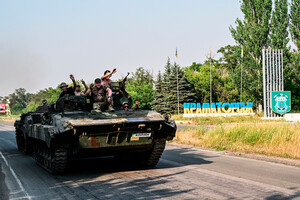However, decentralization alone is not enough to win the war.

Increasing firepower and disregard for the lives of civilians help Russia slowly conquer territory in Ukraine. But if we consider the “soldier for soldier” model, Ukrainian forces are more effective. Part of their advantage comes down to the principle that Western armies call “mission command”. What and why helps Ukraine restrain the outnumbered Russian forces? The Economist explains.
“Teamwork” is a military management style that empowers rank-and-file soldiers, says Tyler Zagurski of the US Marine Corps. Commanders will publicize their intentions – the principles and objectives of the mission – and delegate responsibility for their execution to junior officers, allowing them to exercise their own initiative and judgment. This speeds up decision-making and allows armies to react flexibly and even surprise enemies who may expect them to act by the book. As long as the troops follow the commander's intent, the forces directing the mission can be creative, changing tactics and taking advantage of opportunities as they arise. The cultural underpinnings of such tactics include trust, individualism, innovation, and entrepreneurship—qualities often associated with liberal democracy.
The work of Western instructors in Ukraine helped to instill teamwork in the army, which, like the Russian one, arose from the old Soviet military forces. Especially at the beginning of the fighting near Kiev, Ukrainian soldiers often broke into small groups, which skillfully ambushed the clumsy Russian columns, using light anti-tank and anti-aircraft weapons provided by the West. It helped that the Ukrainians trained in close combat, where personal initiative is especially important. This forced Russia to withdraw from Kyiv and regroup around the Donbass, a region in the east where the Russian Federation has used a barrage of intense artillery fire to advance.
Authoritarian regimes, such as Russia's, stifle personal initiative and are often unwilling to give troops freedom of action to accomplish missions. Dictators tend to value loyalty over competence. And limiting freedom of speech dulls creativity. Stephen Webber of the RAND Corporation, an American think tank, argues that China's People's Liberation Army, which is strictly subordinate to the Communist Party, promotes the concept of “control and command”.
Read also: Bloomberg: The war in Ukraine may move to the next stage
But some non-democratic regimes have adopted this philosophy. Adolf Hitler considered Auftragstaktik, a term generally synonymous with “Teamwork”, to be the basis of Blitzkrieg, the tactic of using rapid, targeted attacks by mobile forces to rapidly advance and unbalance the enemy, which Germany used with great success in the early years of World War II. A field manual for German soldiers in 1933 praised the ability to “take responsibility”. Instead of waiting for orders from above, soldiers must act “independently and decisively.” Germany's defeat — and more recently, America's failures in Vietnam, Iraq, and Afghanistan — make it clear that “teamwork” alone is not enough to win wars.
The concept will evolve with modern communication technologies and observation. On the one hand, it will make it easier for soldiers on the front lines to receive intelligence that allows them to make decisions. On the other hand, it can allow commanders who are very far from the battlefield to manage at the micro level. “It's tempting,” laments Eitan Shamir of Israel's Bar Ilan University, when superiors will call and say, “Go right, go left.” American soldiers call such intervention a “9,000-mile screwdriver.”
Previously reported that since the beginning of Russia's full-scale invasion of Ukraine the occupying army has already lost more than 40,000 servicemen.




